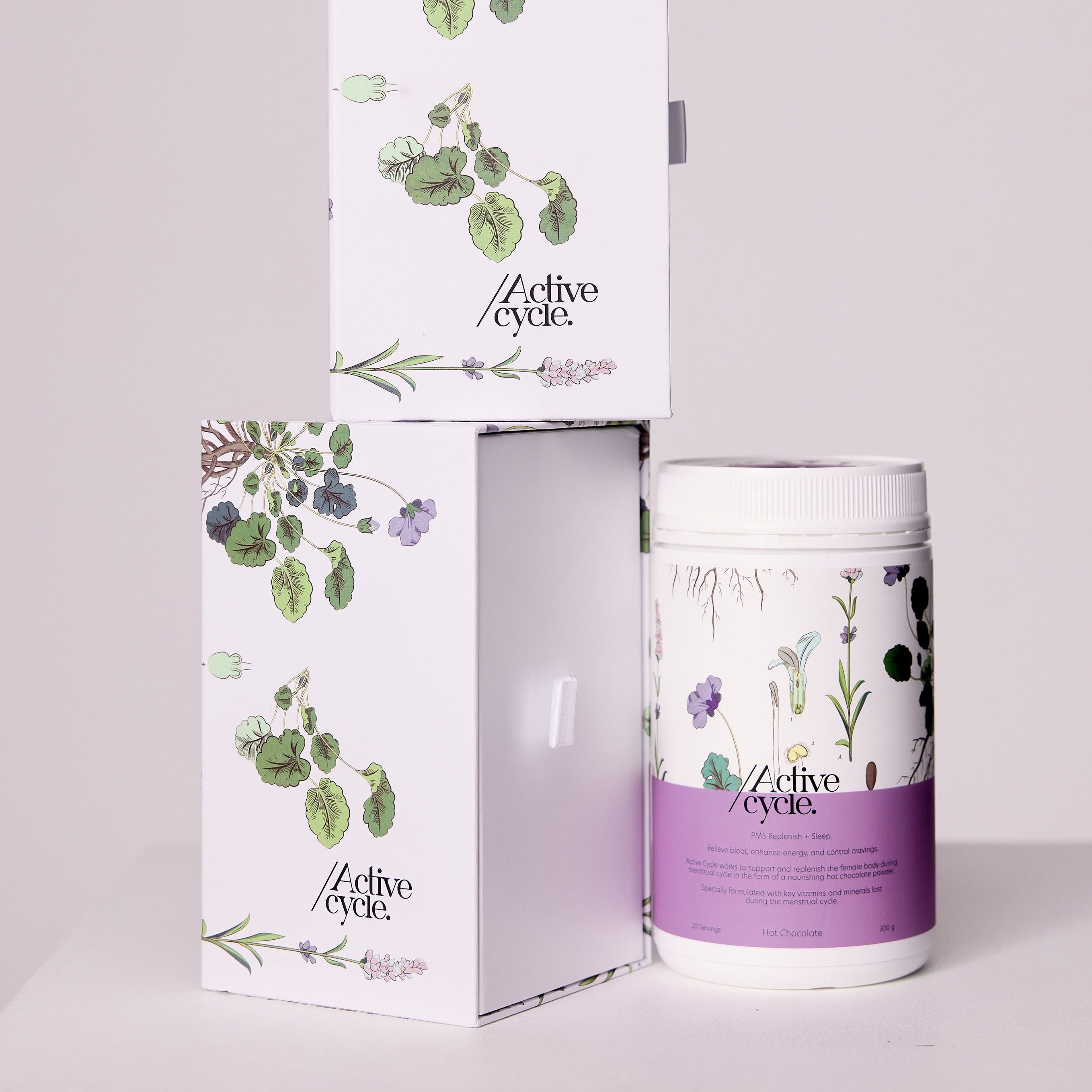The pregnancy and postpartum periods – including breastfeeding – are the all-important stages for ensuring you’re meeting the raised nutritional requirements. Not just for ensuring your baby has a healthy development but also for avoiding negative health complications in the mother post-birth which are associated with inadequate nutrition.
Both pregnancy and childbirth are demanding on the body. The demands of growing a little human draws on the nutrients of a mother and the physical exhaustion of childbirth will more often than not compromise a mother’s nutrient status. Although it is all-important that adequate caloric or energy intakes are being met, it is also just as important to recognise the nutrient density of these foods to ensure recommended amounts of micronutrients – such as folate and iron – are being maintained.
During the postpartum period, inadequate intakes of certain nutrients can cause long term issues, such as an uncorrected iron deficiency causing persistent anaemia. A Japanese study found that up to 90% of women 1 year postpartum have insufficient intakes of nutrients such as iron, calcium, vitamin D and folate. This could be due to the exclusion of individualized dietary assessments and nutrition education in the postpartum period.
Obviously during the initial stages of postpartum there are a million things going on before you even begin to think about your own health. However, prioritising your health is so vital for ensuring you can continue supporting your baby. Read on for nutrients you can lean on for support postpartum.
Iron
Iron deficiency and iron anaemias are one of the most prevalent nutrient deficiencies among women due to higher iron losses through menstrual bleeding and blood loss during childbirth. Iron deficiencies during pregnancy and postpartum are common due to increased pregnancy-related iron requirements. However, many women actually enter pregnancy with pre-depleted iron stores putting them at further risk of iron deficiency postpartum.
Postpartum anaemia affects around 50% of women in developed countries and is linked to fatigue, impaired cognition – aka baby brain – fainting, breathlessness and there is extensive research on its association with post-partum depression. Studies show that around 50% of pregnant women are affected by iron deficiency. So, if women commonly enter pregnancy already depleted and are experiencing iron deficiency symptoms during pregnancy, this is a big red flag for iron levels postpartum.
The recommended daily intake (RDI) for iron in pregnancy is 27mg and 10mg during lactation. Please note that these amounts are based on average requirements and don’t take into consideration individual circumstances such as nutrient deficiencies. So depending on your situation you may need more.
The major sources of iron come from meats, fish and poultry, however, is also sourced from certain plant foods such as wholegrains and legumes, although plant sources are less bioavailable. This is due to the form of iron present in the food, either haem or non-haem iron. Haem iron is readily available for uptake whereas non-haem sources benefit from being paired with nutrients that can enhance their uptake such as vitamin C foods – citrus, kiwi fruit, tomatoes, potatoes and berries.
Zinc
Zinc is another crucial mineral that’s prioritisation during pregnancy is vital for normal developmental outcomes of the child such as preventing low birth weight and small for gestational age. Zinc is one of the most abundant minerals in the body and because of this it is needed in abundance from our diets. And, unfortunately, most pregnant women are not meeting the increased daily needs of zinc.
Like iron, depleted postpartum zinc levels are associated with postnatal depression. Postnatal depression affects 10-20% of women and studies have shown that postpartum zinc supplementation has a positive effect on preventing postpartum depression. With low levels of zinc also comes impaired immune function putting mothers at risk of illness, which is not ideal for a busy new mum and new-born baby.
During postpartum periods such as breastfeeding, the RDI for zinc is 12mg/day. Rich sources of zinc include meat, poultry, fish and dairy but can also be found in plant sources such as grains/cereals and legumes. There is one factor, however, during pregnancy and lactation that can affect the absorption of zinc. This factor being that those on a higher dose of iron may have compromised absorption of zinc due to competition for intestinal absorption.
Magnesium
Our favourite relaxing micronutrient, magnesium is definitely one to prioritise in the postpartum period. Not only are magnesium levels required in greater amounts during pregnancy, but deficiencies can lead to complications such as gestational diabetes, leg cramps, preterm labour and pre-eclampsia. A study measuring magnesium in pregnant women reported that magnesium levels had overall reduced halfway through pregnancy compared to those levels measured at the start, suggesting that magnesium deficiencies are easier to come-by than one may think.
During postpartum, your regular hours of sleep are probably going to be few and far between. This is where magnesium comes in. Magnesium plays a key role in relaxing neuromuscular stimulation which is essential for getting the body out fight-or-flight mode and into rest-and-digest mode, therefore aiding a good night’s sleep.
It also plays a major role in optimal bone health as a large percentage of magnesium is stored in bone. It promotes the regulation of calcium in bones, which we all know is a determining factor of bone health, and is involved in bone-building mechanisms. Bone health is something that should be prioritised postpartum as there is associations between pregnancy and deterioration of bone mass.
Magnesium is widely available from wholefoods such as meats, cereals/grains, legumes and vegetables like dark leafy greens. Though, processing of these foods can lead to reduction of magnesium present therefore leading to nutrient deficiencies. So opt for wholefoods as much as possible. The RDI for magnesium during this life stage is 310mg/day.
At Active Collagen our Active Cycle hot chocolate is a nourishing brew filled with all three of these essential nutrients for boosting and replenishing stores in postpartum mothers. Having a cup of this nurturing drink in the evenings provides you with 6.2mg of iron, 12mg of zinc and 300mg of magnesium. So relax, sit back and know we’ve got you covered.
Of course, this is not to replace wholefoods, but for added benefits on top of intakes through food.
Aparicio, E., Jardí, C., Bedmar, C., Pallejà, M., Basora, J., Arija, V., & The Eclipses Study Group (2020). Nutrient Intake during Pregnancy and Post-Partum: ECLIPSES Study. Nutrients, 12(5), 1325. https://doi.org/10.3390/nu12051325
Shiraishi, M., Matsuzaki, M., Tsunematsu, R., Watanabe, S., Kobayashi, R., & Haruna, M. (2021). Effects of Individual Dietary Intervention on Nutrient Intake in Postpartum Japanese Women: A Randomized Controlled Trial. Nutrients, 13(9), 3272. https://doi.org/10.3390/nu13093272
Butwick, A. J., & McDonnell, N. (2021). Antepartum and postpartum anemia: a narrative review. International journal of obstetric anesthesia, 47, 102985. https://doi.org/10.1016/j.ijoa.2021.102985
Abu-Ouf, N. M., & Jan, M. M. (2015). The impact of maternal iron deficiency and iron deficiency anemia on child's health. Saudi medical journal, 36(2), 146–149. https://doi.org/10.15537/smj.2015.2.10289
National Health and Medical Research Council. (2006). Iron. https://www.eatforhealth.gov.au/nutrient-reference-values/nutrients/iron
Aoki, C., Imai, K., Owaki, T., Kobayashi-Nakano, T., Ushida, T., Iitani, Y., Nakamura, N., Kajiyama, H., & Kotani, T. (2022). The Possible Effects of Zinc Supplementation on Postpartum Depression and Anemia. Medicina (Kaunas, Lithuania), 58(6), 731. https://doi.org/10.3390/medicina58060731
National Health and Medical Research Council. (2006). Zinc. https://www.eatforhealth.gov.au/nutrient-reference-values/nutrients/zinc
Agedew, E., Tsegaye, B., Bante, A., Zerihun, E., Aklilu, A., Girma, M., Kerebih, H., Wale, M. Z., & Yirsaw, M. T. (2022). Zinc deficiency and associated factors among pregnant women's attending antenatal clinics in public health facilities of Konso Zone, Southern Ethiopia. PloS one, 17(7), e0270971. https://doi.org/10.1371/journal.pone.0270971
Enaruna, N. O., Ande, A., & Okpere, E. E. (2013). Clinical significance of low serum magnesium in pregnant women attending the University of Benin Teaching Hospital. Nigerian journal of clinical practice, 16(4), 448–453. https://doi.org/10.4103/1119-3077.116887
Zarean, E., & Tarjan, A. (2017). Effect of Magnesium Supplement on Pregnancy Outcomes: A Randomized Control Trial. Advanced biomedical research, 6, 109. https://doi.org/10.4103/2277-9175.213879
Fiorentini, D., Cappadone, C., Farruggia, G., & Prata, C. (2021). Magnesium: Biochemistry, Nutrition, Detection, and Social Impact of Diseases Linked to Its Deficiency. Nutrients, 13(4), 1136. https://doi.org/10.3390/nu13041136
National Health and Medical Research Council. (2006). Magnesium.
https://www.eatforhealth.gov.au/nutrient-reference-values/nutrients/magnesium




